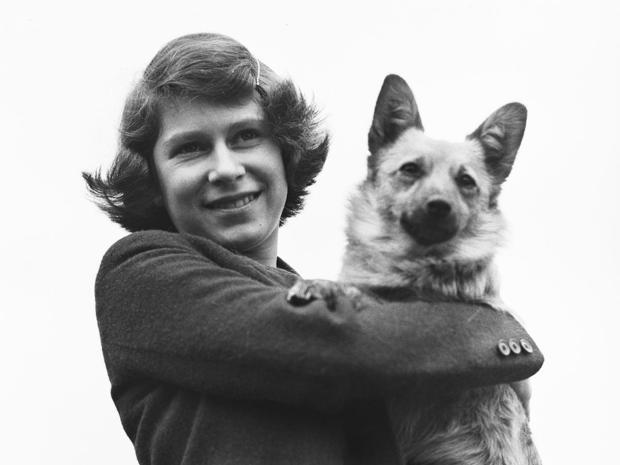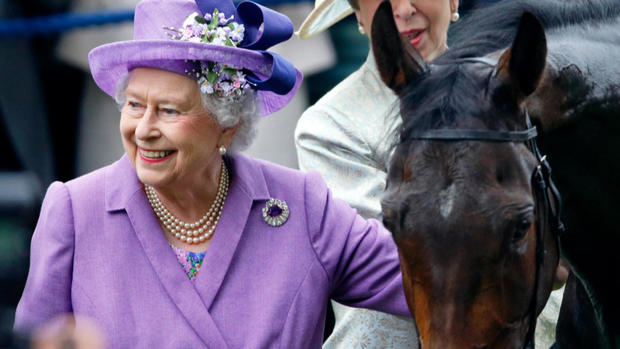The Queen's animal companions
You've seen it – 900 million other people have seen it – the part of the opening ceremonies for the 2012 Olympics in which 007 Is upstaged by the Queen's Corgis at Buckingham Palace.
From the age of seven until the day she died, the Queen had Corgis
Michael Joseph Gross, a contributing editor at Vanity Fair, is writing a book about the Queen and her Corgis. He said her very first Corgi was named Dookie.
Correspondent Martah Teichner asked, "Was there a consistent pattern of Corgi PR, Corgi diplomacy?"
"I would call it less a consistent pattern than a regular through line," he replied.
In 1936, when Princess Elizabeth was 10 and Princess Margaret was 6, a book came out, titled "Our Princesses and Their Dogs," a publicity triumph meant to soften a PR disaster for the royal family: the abdication of King Edward VIII to marry American divorcee Wallis Simpson.
Gross said, "I think it's important when we talk about the dogs as publicity never to forget that, at the same time they were very consciously being used as props, it doesn't discount the fact that these were very real and very deep relationships."
What did the public see? "They got to see her humanity," he said. "They got to see her heart without her opening herself up exactly."
Her dog Susan was an 18th birthday present. Fourteen generations of the Queen's Corgis were bred from her. "Susan went on with her on her honeymoon," Gross said. "When she and Philip rode in the carriage to the train station to go up for their honeymoon, the newspaper reporters at the time said she stole the show."
The Queen had more than 30 Pembroke Welsh Corgis over her lifetime, plus a number of Dorgis (Corgis crossed with Dachshunds). She was known to breed her dogs in bad times, when she needed puppies to cheer her up.
Her horses were all about good times.
Journalist Julian Muscat has written extensively about the Queen's love of horses. "The horse is inextricably linked with the royal household and has been for centuries," he said. "The Queen is generally acknowledged to be the most knowledgeable of all the British monarchs we've ever had."
She was practically born on a horse. For decades she marked many ceremonial occasions on horseback. Her breeding and racing operation was no passive hobby; it was a multi-million dollar business she paid for out of her own pocket. Her last winner, two days before she died, a horse named Love Affairs.
Teichner asked, "How many winners do you think she may have had?"
"More than 1,800," Muscat replied. "You saw whenever she went racing to watch her horses run, the joy she took from that experience, and there was a pleasure to behold her pleasure."
A pleasure she allowed herself the show.
Muscat was there when her horse Estimate won the Gold Cup at Royal Ascot in 2013. "Everybody was going crazy," he recalled. "It was a fantastic occasion, an unforgettable day. Everyone was ecstatic."
The Queen's face said it all – what was won, and now, what has been lost.
For more info:
Story produced by Aria Shavelson. Editor: Remington Korper.
More from "Sunday Morning":
- Queen Elizabeth II: Why she will be missed
- Charles III: What changes might we see from Britain's new king?
- Britain's royal history: More than 1,000 years of family drama
- The Queen on screen: Actors discuss playing the most private of public persons
- Tina Brown on Elizabeth II: "The monarchy was incredibly lucky that it is she who inherited the throne"
- Former President Bill Clinton on Queen Elizabeth II: "She was an amazing woman"
Commentary: Amanda Foreman on Queen Elizabeth's epic reign, and why the monarchy matters
See also:

